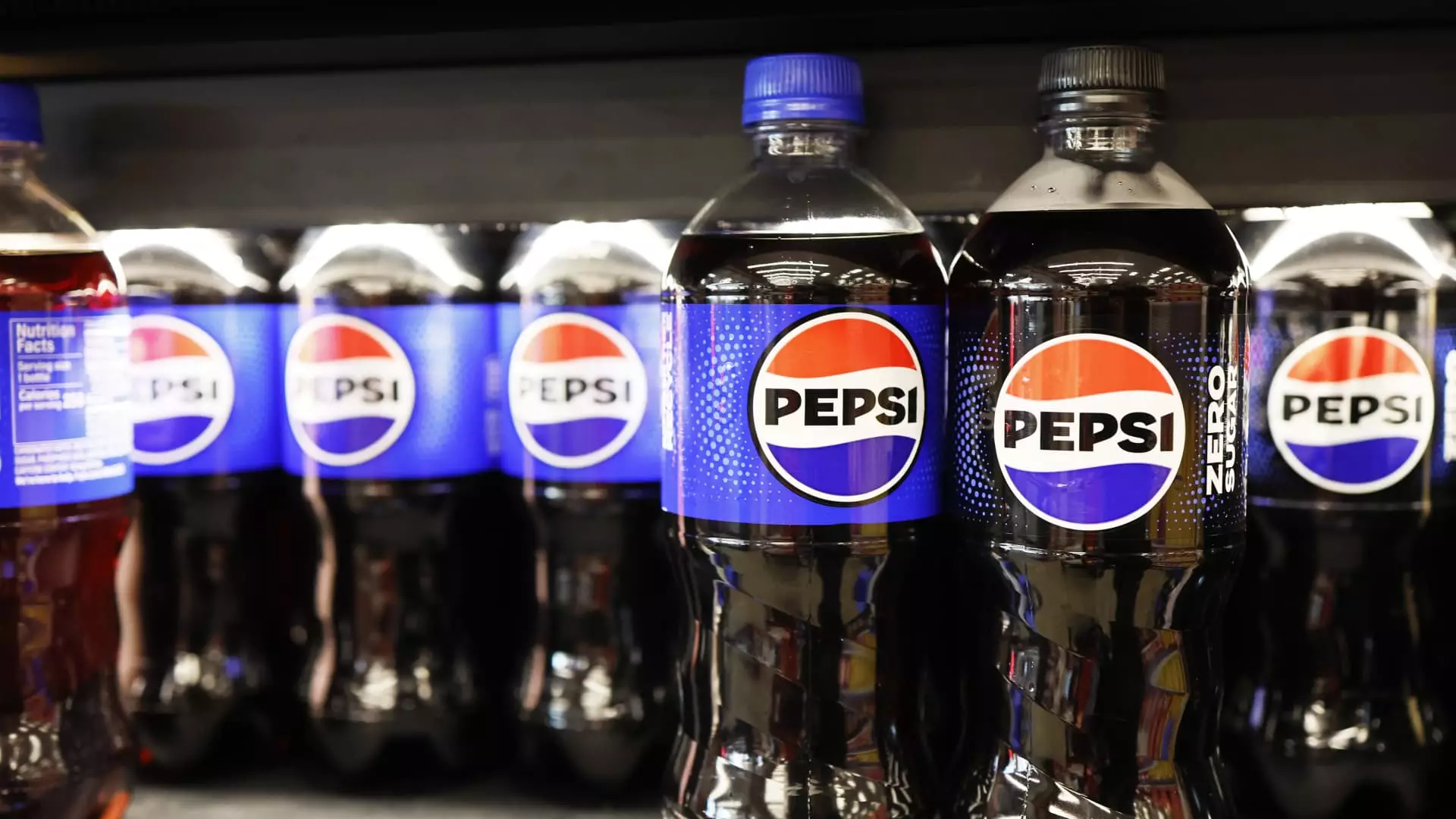PepsiCo recently reported quarterly earnings that exceeded analysts’ expectations, despite facing weaker demand in the U.S. market. The company had to deal with challenges such as the Quaker Oats recall and backlash over higher prices for its products. While the company managed to beat revenue estimates, its shares still dropped by more than 2% in morning trading. This indicates a level of uncertainty among investors regarding PepsiCo’s ability to navigate these obstacles effectively.
In the first quarter, PepsiCo reported a net income of $2.04 billion, with earnings per share at $1.48. This represented an improvement from the previous year, with adjusted earnings per share coming in at $1.61. Additionally, the company’s revenue reached $18.25 billion, surpassing the expected $18.07 billion. Despite these positive numbers, the company’s volume continued to face pressure due to pricing issues and product recalls.
The Quaker Foods recall had a significant impact on PepsiCo’s volume in North America, with a reported 22% decrease in the quarter. This plummet in volume was exacerbated by salmonella contamination concerns in Quaker Food cereals and bars. As a result, the company’s organic volume also took a hit, dropping by approximately 1%. PepsiCo has been taking steps to address this issue, including the closure of a Quaker Oats plant linked to the recalls in June.
Apart from the Quaker Foods recall, PepsiCo also faced challenges in its North American divisions. The beverage unit saw a 5% decline in volume, while Frito-Lay North America reported a 2% decrease. Higher pricing for products like Gatorade and Fritos contributed to the decline in volume. The company’s efforts to target lower-income consumers in the U.S. market have been met with mixed results, as consumers look to stretch their paychecks.
On a more positive note, PepsiCo saw stronger demand outside of the U.S., particularly in regions like Asia-Pacific, Australia, New Zealand, and China. In these markets, snacks experienced a notable 12% volume growth. Chinese consumers, in particular, showed a willingness to buy more Pepsi products despite being cautious with their spending. Even in Europe, where grocery prices have been on the rise, PepsiCo witnessed increased beverage and snack volume.
Looking ahead, PepsiCo has reaffirmed its 2024 outlook, with expectations of organic revenue growth of at least 4% and core constant currency earnings per share climbing by at least 8%. The company remains focused on addressing the challenges presented by market dynamics while seeking to capitalize on growth opportunities globally. PepsiCo’s executives expressed confidence in their ability to navigate the changing landscape and remain competitive in the industry.
While PepsiCo has demonstrated resilience in the face of challenges such as weaker U.S. demand and product recalls, the company must continue to adapt to evolving market conditions to sustain its growth trajectory. By focusing on innovation, customer engagement, and operational efficiency, PepsiCo can position itself for long-term success in a competitive and dynamic marketplace.

